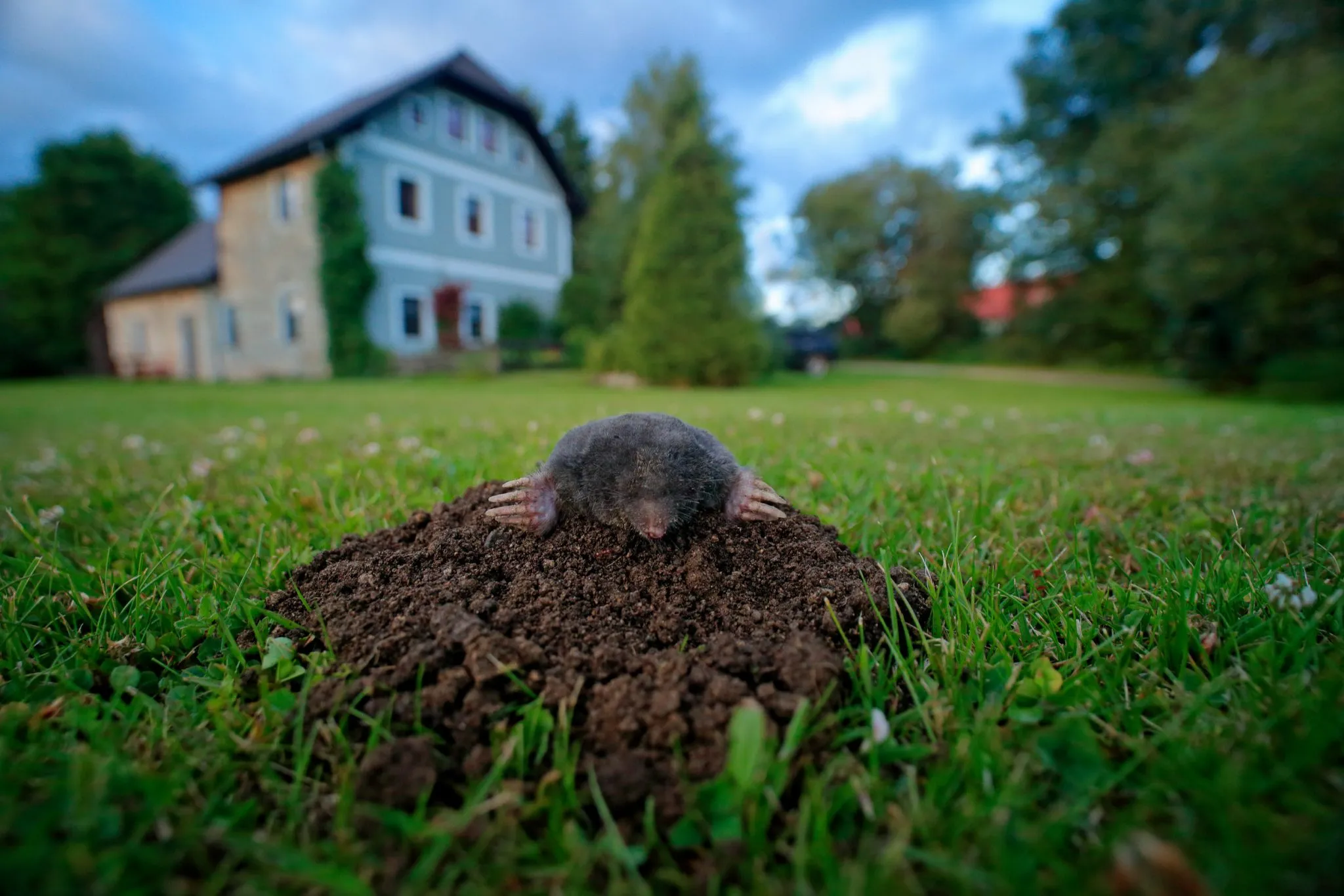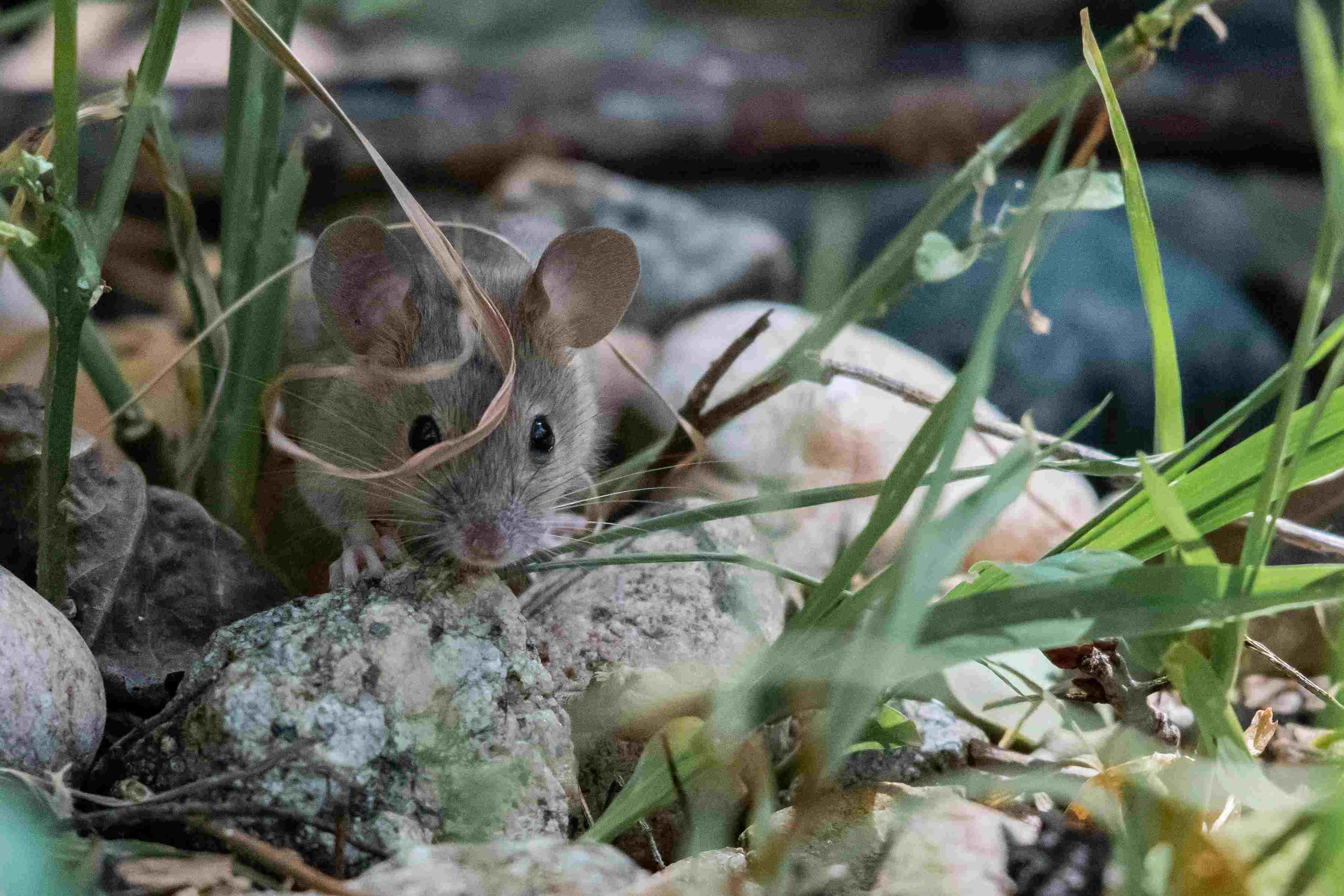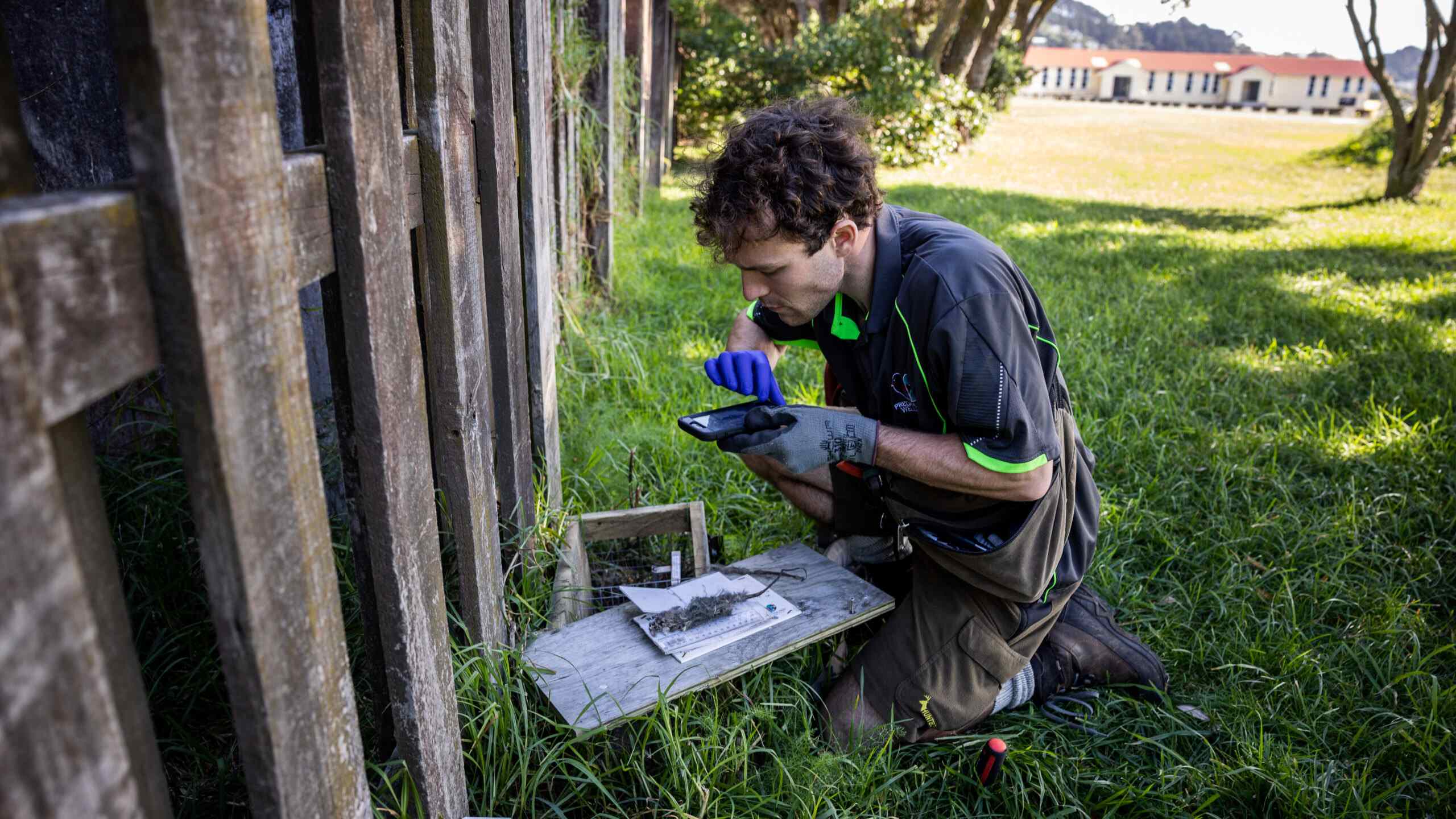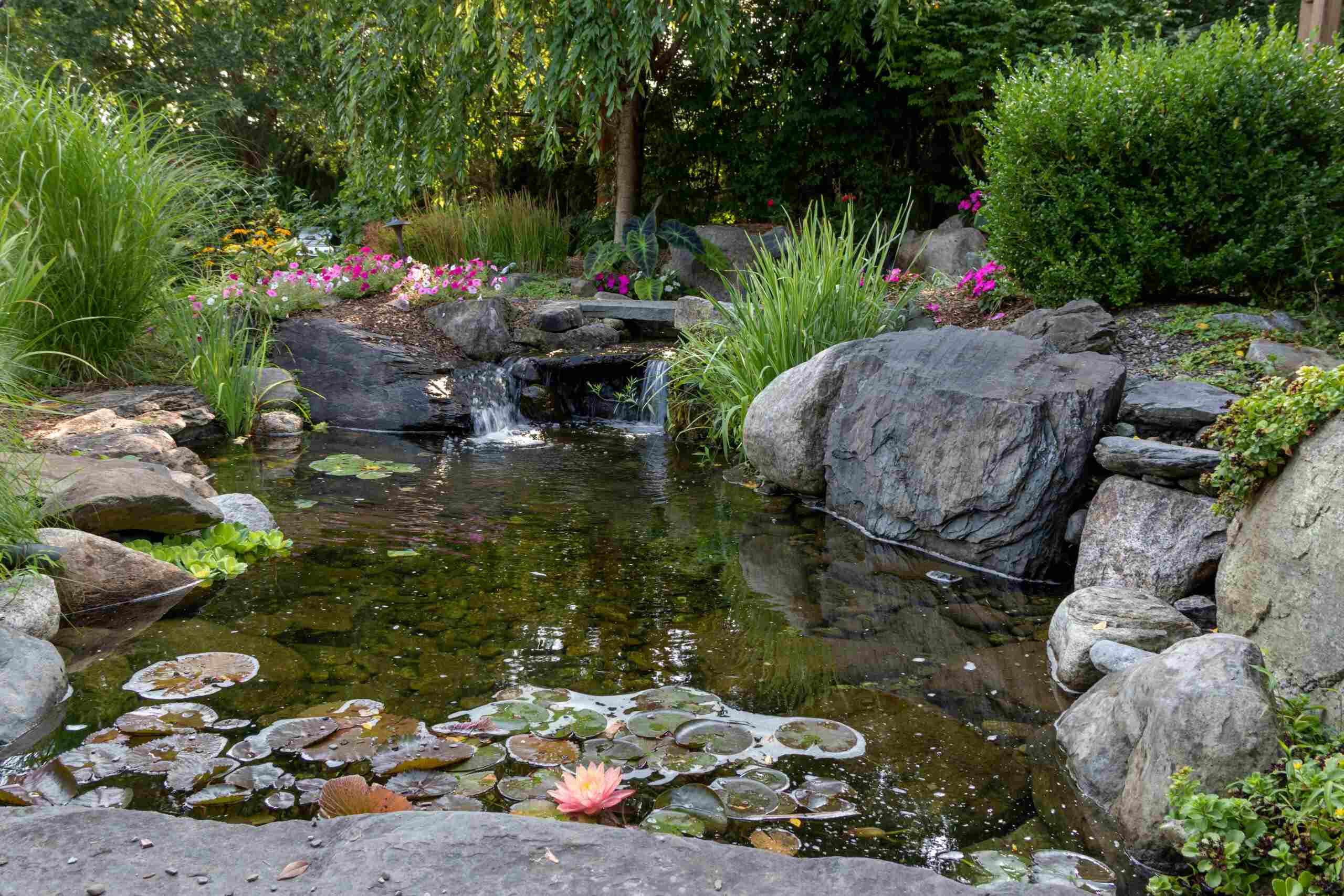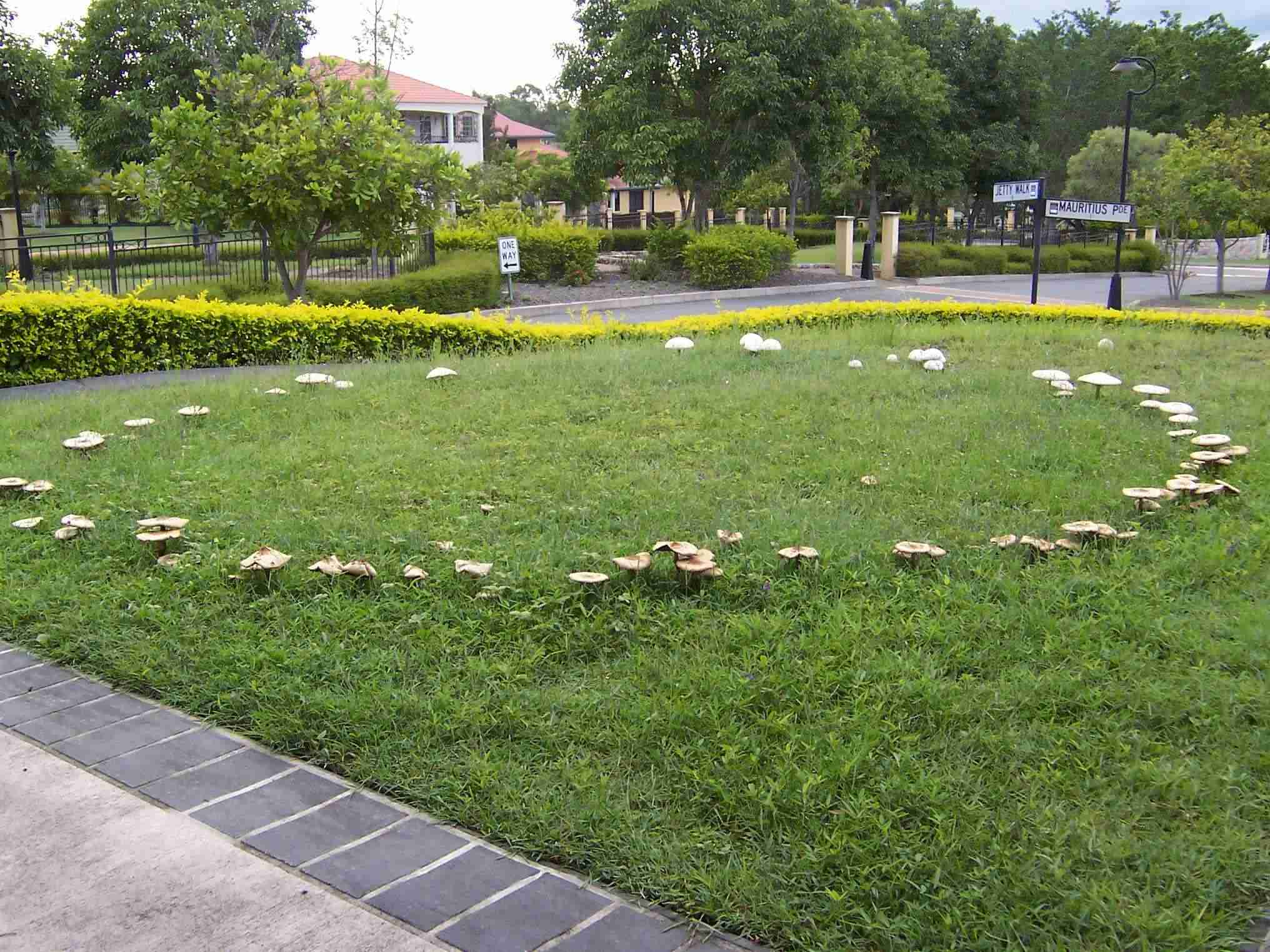Home>Gardening Tips and Tricks>How To Get Rid Of Ants In Your Backyard
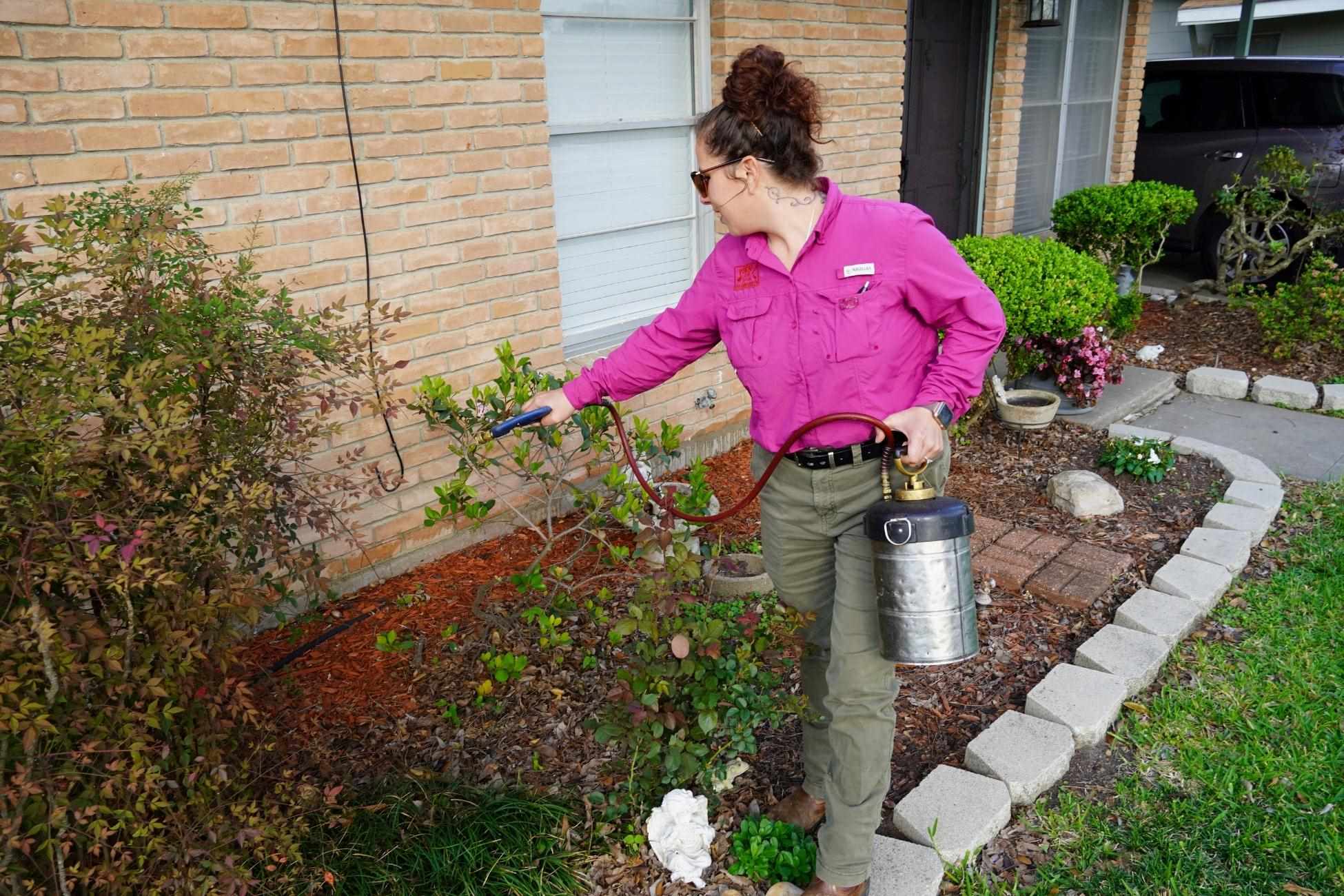

Gardening Tips and Tricks
How To Get Rid Of Ants In Your Backyard
Published: August 5, 2023
Learn effective methods for problem solving and get rid of ants in your backyard with these easy-to-follow tips and tricks.
(Many of the links in this article redirect to a specific reviewed product. Your purchase of these products through affiliate links helps to generate commission for Chicagolandgardening.com, at no extra cost. Learn more)
Table of Contents
Introduction
Welcome to your backyard oasis! The one place where you can relax, unwind, and enjoy the beauty of nature. But what happens when your tranquility is disrupted by an army of tiny invaders? Yes, you guessed it right – ants! These tiny creatures can quickly become a nuisance, ruining your outdoor experience. However, fret not, because we’re here to help you reclaim your backyard from these pesky creatures.
Dealing with ant infestations in your backyard is a common problem that many homeowners face. These insects, with their amazing ability to form vast colonies and navigate through small cracks and crevices, can quickly make themselves at home in your outdoor space. From the well-known black ants to the infamous fire ants, there are various species that may be infiltrating your backyard.
Understanding the behavior of ants and implementing effective prevention and control methods is the key to getting rid of them. In this article, we’ll provide you with essential information on identifying ant species, understanding their behavior, and various methods to eliminate them.
Whether you prefer natural remedies or the use of chemical insecticides, we’ll explore the different options that can help you regain control over your backyard. By the end of this article, you’ll be equipped with the knowledge and tools to keep ants at bay, allowing you to enjoy your outdoor space without any unwelcome guests.
So, if you’re ready to take on the challenge of ant control in your backyard, let’s dive into the fascinating world of these tiny intruders and discover effective solutions to reclaim your outdoor haven!
Identifying Ant Species in Your Backyard
When it comes to dealing with any pest, including ants, it’s crucial to identify the specific species you’re dealing with. Different ant species have distinct behaviors, nesting habits, and food preferences. By accurately identifying the ants in your backyard, you can tailor your approach to effectively eliminate them.
There are several common ant species that you may encounter in your backyard:
- Black Ants: Also known as garden ants or pavement ants, these ants are small and usually black in color. They typically nest outside and construct their colonies in soil or under rocks.
- Fire Ants: Fire ants are notorious for their aggressive behavior and painful stings. They build mound-like nests in soil and can be found in lawns, gardens, and open spaces.
- Carpenter Ants: These ants are larger in size and often mistaken for termites. They are known for their ability to damage wooden structures, and they prefer to nest in decaying wood.
- Pharaoh Ants: Pharaoh ants are tiny, light brown ants that are commonly found in indoor spaces. They prefer warm and humid conditions and can nest in walls, cabinets, and other hidden areas.
Identifying the ant species can be challenging, especially if you’re not familiar with their characteristics. You can consult pest control experts or use online resources to help you determine the specific type of ants in your backyard.
There are a few key things to look out for when identifying ant species:
- Size: Note the size of the ants, as it can vary from tiny to relatively large.
- Color: Pay attention to the coloration of the ants, as it can range from black and brown to red and even yellow.
- Nesting Habit: Observe where the ants are entering and exiting, as well as their nesting areas. Some ants build mounds on the ground, while others may nest inside walls or decaying wood.
- Behavior: Take note of the ants’ behavior, such as their movement patterns and reaction to disturbances.
By identifying the ant species, you can better understand their habits and preferences, enabling you to implement targeted strategies for effective ant control in your backyard.
Understanding Ant Behavior
Ants are social insects that live in highly organized colonies with specific roles for each individual. To effectively eliminate ants from your backyard, it’s important to understand their behavior and how they operate within their colonies.
Here are some key aspects of ant behavior:
- Communication: Ants use chemical signals to communicate with each other. They leave pheromone trails to mark food sources, guide other ants to the location, and communicate danger or alarm.
- Foraging: Ants are constantly on the lookout for food sources. They have a well-developed sense of smell, allowing them to locate and transport food back to their colonies.
- Nesting: Ants construct nests based on their species and preferences. Some build nests in soil, while others may choose to nest in wood or even inside the cracks and crevices of your outdoor spaces.
- Colony Hierarchy: Ant colonies have a hierarchical structure, with a queen, worker ants, and sometimes even soldier ants. The queen’s primary role is to lay eggs, while the worker ants take care of various tasks such as foraging, nest maintenance, and caring for larvae.
Understanding ant behavior allows you to develop effective strategies to eliminate them from your backyard. By disrupting their communication and foraging patterns, you can make your outdoor space less attractive to ants and discourage them from establishing colonies.
One effective way to disrupt ant behavior is to remove potential food sources. Keep your outdoor areas clean and free from spilled food or garbage. Seal food containers tightly and promptly clean up any food spills.
Another key aspect of ant behavior to consider is their adaptability. Ants are highly resilient and have the ability to find alternative food and water sources. Therefore, it’s important to address any moisture issues in your backyard, such as leaky faucets, to deny ants access to water.
By understanding ant behavior, you can anticipate their actions and implement targeted prevention and control methods to effectively eliminate them from your backyard.
Prevention Methods for Ant Infestations
Prevention is key when it comes to dealing with ant infestations in your backyard. By implementing the following prevention methods, you can create an environment that is less inviting to ants and reduce the likelihood of an infestation:
- Seal Entry Points: Inspect your outdoor spaces for any cracks, gaps, or openings that ants can use to enter your yard or home. Seal these entry points with caulk or other appropriate sealants to prevent ants from gaining access.
- Trim Vegetation: Keep vegetation well-trimmed and ensure that trees, shrubs, and plants do not come into direct contact with your house or structures. Ants often use branches and plants as bridges to enter your property.
- Remove Food Sources: Keep your backyard clean and free of food debris. Regularly clean BBQ grills, outdoor dining areas, and bird feeders to prevent attracting ants with food particles.
- Proper Waste Management: Dispose of garbage properly and use sealed trash bins. Ensure that the lids are tightly closed to prevent ants from accessing food scraps and creating a potential food source.
- Store Food Properly: Store food items in sealed containers made of glass or plastic. This helps prevent ants from detecting food sources and eliminates the temptation for them to enter your backyard.
- Maintain a Dry Environment: Address any moisture issues in your backyard, such as standing water or leaky faucets. Ants are attracted to moisture, so maintaining a dry environment reduces their chances of making your backyard their home.
- Regular Yard Maintenance: Keep your lawn well-maintained by regularly mowing and removing any debris or clutter that may provide hiding places or nesting opportunities for ants.
Implementing these prevention methods helps create an environment that is less susceptible to ant infestations. By eliminating potential entry points and food sources, you make your backyard a less appealing space for ants to establish their colonies.
It’s important to note that prevention methods should be followed consistently to effectively deter ants. Regular inspections and proactive measures can go a long way in keeping your backyard ant-free.
Natural Remedies to Eliminate Ants
If you prefer to use natural methods to eliminate ants from your backyard, there are several effective remedies that you can try. These natural solutions are safe for the environment, pets, and children. Here are some popular options:
- Vinegar: Vinegar is a versatile household item that can help repel ants. Mix equal parts of vinegar and water and spray it along entry points, ant trails, and nesting areas. The strong scent of vinegar disrupts their pheromone trails, deterring ants from entering your backyard.
- Peppermint Oil: Ants dislike the smell of peppermint. Mix a few drops of peppermint essential oil with water and spray it around entry points and areas prone to ant activity. This natural remedy can help repel ants and discourage them from infesting your backyard.
- Diatomaceous Earth: Diatomaceous earth is a fine powder made from fossilized algae. Sprinkle a thin layer of diatomaceous earth around ant nests and entry points. The powder dehydrates the ants’ exoskeleton, ultimately killing them. Be sure to use food-grade diatomaceous earth if you have pets or children roaming the yard.
- Citrus Peels: Citrus peels, such as lemon or orange, can act as a natural ant repellent. Place citrus peels near ant trails or rubbing the peels directly on surfaces where ants frequently appear. The strong aroma deters ants and disrupts their foraging patterns.
- Cinnamon: Ants dislike the strong scent of cinnamon. Sprinkle powdered cinnamon near ant entry points and areas where ants are present. Repeat this process frequently to deter ants from returning to your backyard.
- Boric Acid: Boric acid is a naturally occurring compound that can be used to eliminate ants. Mix boric acid with sugar or honey to create a bait mixture. Place small amounts of the mixture in areas where ants are commonly found. The ants will be attracted to the sweet bait and carry it back to their colonies, ultimately killing them.
Remember that natural remedies may require repeated applications to achieve effectiveness. It’s important to be patient and persistent when using natural methods for ant control in your backyard.
Incorporating natural remedies into your ant control strategy can be an eco-friendly and effective way to eliminate ants from your outdoor spaces. However, it’s important to note that severe infestations or persistent ant problems may require professional assistance.
Chemical Insecticides for Ant Control
In cases where natural remedies are not providing satisfactory results or when dealing with severe ant infestations, the use of chemical insecticides can be an effective solution. Chemical insecticides are specifically formulated to target and eliminate ants, providing fast and long-lasting results. Here are some common types of chemical insecticides used for ant control:
- Spray Insecticides: Aerosol sprays are popular for their ease of use and ability to quickly kill ants on contact. Look for insecticides labeled specifically for ants and follow the instructions carefully. These sprays typically contain active ingredients such as pyrethroids or pyrethrins.
- Bait Stations: Bait stations are designed to attract ants with a food-based bait containing insecticide. The worker ants consume the bait and carry it back to the colony, ultimately killing the entire colony. Bait stations are effective for targeting the source of the ant infestation.
- Granular Insecticides: Granular insecticides are designed to be spread over the affected area. They release a slow-acting poison that ants carry back to their nests. This approach allows the insecticide to eliminate the entire ant colony over time.
- Residual Insecticides: Residual insecticides leave a residual barrier on surfaces, providing long-lasting protection against ants. These insecticides are typically used for outdoor perimeter treatment, creating a barrier that ants cannot cross.
When using chemical insecticides, always follow the instructions provided by the manufacturer. Take necessary precautions to ensure the safety of pets, children, and beneficial insects by keeping them away from treated areas.
While chemical insecticides can be highly effective at eliminating ants, it’s important to note that repeated use of these products may lead to pesticide resistance and harm beneficial insects. Therefore, it’s recommended to only use chemical insecticides as a last resort or in severe infestation cases.
If you are unsure about using chemical insecticides or dealing with a large-scale ant infestation, it’s advisable to seek the assistance of professional pest control services to ensure proper and safe application of these products.
Calling Professional Pest Control Services
In some cases, dealing with ant infestations in your backyard can be challenging or time-consuming. This is where professional pest control services can be beneficial. Pest control professionals have the knowledge, experience, and tools to effectively eliminate ant infestations and provide long-term solutions. Here are some reasons to consider calling a professional:
- Expertise: Pest control professionals are trained in identifying ant species and understanding their behavior. They can accurately assess the severity of the infestation and develop a customized treatment plan for your backyard.
- Safe and Effective Solutions: Pest control companies have access to professional-grade insecticides and equipment that are more potent and effective than over-the-counter products. They have the expertise to handle these products safely and efficiently, ensuring the best possible results.
- Targeted Treatment: Professionals have the knowledge and experience to identify the source of the ant infestation and target it directly. This allows them to eliminate the entire ant colony rather than just treating the surface symptoms.
- Preventive Measures: Pest control professionals not only eliminate existing ant infestations but also provide preventive measures to stop future infestations. By addressing the root causes and implementing effective preventive strategies, they can help ensure long-term ant control in your backyard.
- Save Time and Effort: Dealing with ant infestations can be time-consuming, especially if DIY methods are not yielding results. Hiring professionals allows you to save time and effort, as they handle the entire process from inspection to treatment, giving you peace of mind.
When choosing a pest control company, ensure that they are licensed, insured, and have a good reputation. Get recommendations from friends or read online reviews to find a reliable and trustworthy service provider.
While professional pest control services may require an investment, they can provide an efficient and long-lasting solution to your ant problem. By relying on their expertise, you can enjoy an ant-free backyard without the hassle of dealing with the infestation yourself.
Conclusion
Dealing with ant infestations in your backyard can be a frustrating experience. However, by identifying ant species, understanding their behavior, and implementing effective prevention and control methods, you can reclaim your outdoor space from these pesky invaders.
Start by identifying the specific ant species in your backyard, as different species have different habits and preferences. This knowledge will guide you in implementing targeted strategies for ant control.
Understanding ant behavior is a crucial step in effective ant control. By disrupting their communication and foraging patterns, you can make your backyard less inviting to ants.
Prevention methods play a key role in keeping ants at bay. Seal entry points, remove food sources, and maintain a clean and dry environment to reduce the likelihood of infestations.
If you prefer natural remedies, options such as vinegar, peppermint oil, and cinnamon can help repel ants. However, severe infestations may require the use of chemical insecticides. Use them cautiously and follow the instructions provided.
In some cases, calling professional pest control services is the best course of action. These experts have the knowledge, expertise, and resources to handle severe infestations and provide long-term solutions.
Remember, ant control is an ongoing process. Regular maintenance and vigilance are necessary to ensure that your backyard remains ant-free. By following these strategies and adapting to the specific needs of your backyard, you can enjoy your outdoor space without the intrusion of ants.



